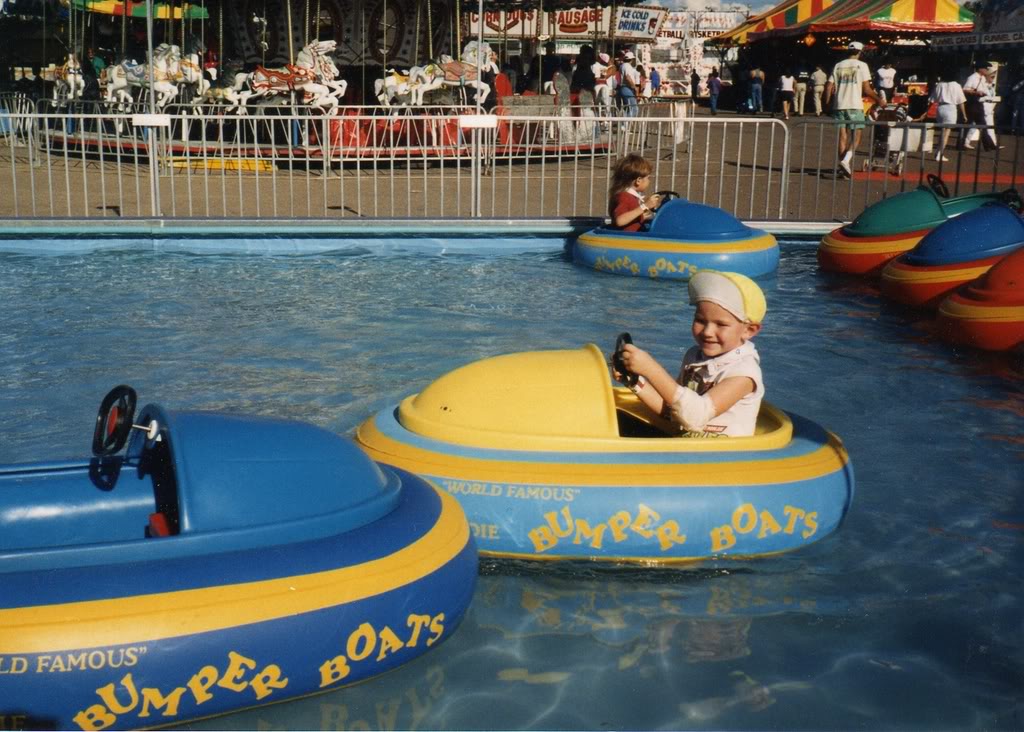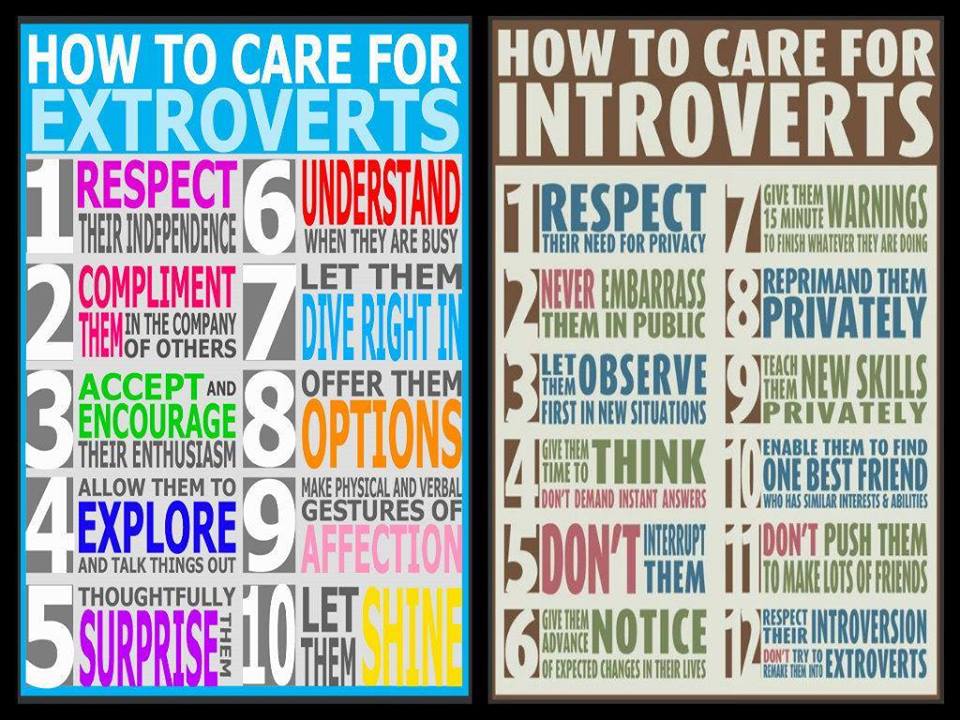
| FIRST, before anything else, I want to note that this is not a recommendation of labelling a child. Don't call your child "an introvert." Don't tell people, "Oh, we can't come over because Bobby is an introvert." Knowledge can be helpful, but labels can be damaging. You can use the information in loving helpful ways without turning it into a condition or a disability or a special gift. (There are links at the bottom of the page to information about living without labels.) |
The first is good—*if* that's what they're asking for!and help them feel more confident approaching social situations.
Which is something extroverts say because they think introverts are broken and need fixed. If introverts ran the world we'd make extroverts spend 8 hours a day by themselves so they weren't so dependent on being around other people to feel okay 😉no matter what it is, they refuse to give it a chance. ... Neither is the type to strike up conversations with people they don't know. Neither has any close friends.Being an introvert, being forced to be social everyday in school was exhausting and intimidating for me. I didn't learn how to be more social. I learned how to blend into the wall so no one noticed me.
My daughter, on the other hand, who is also an introvert, does marvelously well with groups. She had the freedom to choose when to be with other people and when to be at home.
People learn how to interact with others by watching others interact. But put an introvert in a new group situation, they're not focused outward at other people. They're focused inward. They're focused on their discomfort. They're not learning. Or not learning to socialize! They're learning they're awkward unlike the others around them. They're learning they're different and different is bad. They're learning they don't like being in groups.
The best way for introverts to learn to socialize is with the people they're comfortable with: their family. And then whatever friends they feel comfortable with.
Then when they're older and their desire to get something from a group is greater than their discomfort of being in a group, they'll have the skills they picked up from people they trust.
You could give them a handful of tips on how to interact with people in a couple of minutes. (The best being: "Study other people who make you feel comfortable." :-)) But the best social skill they can have is being comfortable in their own skin, knowing that who they are is okay, so that they can turn their attention to other people when they're in social situations. And *that* doesn't come from being told their feelings about their discomfort aren't to be trusted, that they don't know what they need, that other people know them better than they know themselves.
Are they happy?It is frustrating that my 6-yr-old, who is more confident socially, is following his brother's leadYou're looking outwards at messages of how kids are "supposed to be". Look at your own kids. What do they like? What bring them joy? What floats their boats?
One of the worst parenting practices that has spread is dismissing kids' happiness as an indicator of how well they're doing. Parents "have to" send them to school which make kids miserable. Parents "have to" tell them no which makes them upset. Parents "have to" make them do chores, get up, go to bed, eat their liver ... all of which make them unhappy. Conventional parents must steel themselves against their children's unhappiness in order to be "good" parents. Kids' happiness makes parenting more *convenient* but is justified as not an important factor.
Peace and contentment are vitally important to growing up whole. Happiness is a good indicator of those.
I suspect he's following his own "lead" but the fact that his brother can stay home is letting him know it's okay to stay home too.But I think they're not giving things a chance and missing out on social interactions and learning new skills/sports that they would likely end up really enjoying.It sounds like he may be more of a social introvert. Extroverts get recharged by being with people and find being alone draining. Introverts get recharged by being alone and find groups draining. Social introverts enjoy other people but similarly get recharged by being alone.
Even though he has absorbed the skills to be social, he needs that recharge time. He's spent so much time with forced socialization that he needs a long time alone to recharge.
He'll let you know when he's ready for social activities.
They seem to be enjoying what they're doing but you're looking elsewhere. While unschooling parents should keep the environment lively, bringing in new things to leave about —see Sandra's Strewing page (SandraDodd.com/strewing)—new or old favorites of yours TV shows and movies, taking them places—a new playground, a new grocery store, an historical re-enactment, a polo match—the indicator of how well you're doing should be your kids peace, contentment and happiness.They need time to recover from school, including school at home. They need time to recover from being forced to be social. It's like the time spent laying on the couch letting a broken leg set. The leg heals slower if someone is forced to be up doing things while the leg is working hard at healing.
Your kids will let you know when they need more. If they don't do something this year that interests them, they'll do it next year. Or the year after. Or when they're 15. As long as these activities are available for them to choose, they'll choose when *they* need them.
Joyce Fetteroll
original on Always Learning, August 2012

What does your daughter want? What does she enjoy? What do her actions and reactions tell you that she enjoys?
Good point, and it's one aspect of personality. But it's one that's often over simplified and called "shy."Karen James wrote:There's a range of "out" that people like, and even one person will go through phases of wanting to be out more, or wanting some hours or days or weeks of staying home.
Understanding the extremes a little better, and accepting that there advantages, though, is good.
Stereotypes are usually exaggerations of something that exists.
I used to get picked on quite a bit in school for the way I acted. I was shy, yes, but more than that, I needed time away from people to enjoy people more, and I needed less people at one time. I didn't know that then, and I bought the accusations that I was "stuck up" or "too good for everyone" or "a snob." Those labels were very painful because I have a deep inner love for people. I believe in the inherent goodness in most people. And, I wanted people to like me the way I was. I was doing the best I could.Understanding that there isn't necessarily something wrong with me, is helpful, not only for me, but for my ability to support my husband and son, who are both introverts as well. They are both introverts in very different ways from each other and from me. My husband gets a thrill from talking in front of large audiences, but then he needs a couple days to do his own thing at home. He enjoys teaching and talking with people at work, but when he comes home, he needs some down time before interacting with my son and I. My son loves his friends. He plays with someone nearly every day. He can be the life of the gathering, full of humour and goodwill. When he is done, he is done. We need to go right home so that he can recharge. He prefers only one one-on-one social activity per day, and only one or two large group activities per week.
There have been times when someone will stop by to play with Ethan and he will say he is not up for playing at that time. I used to do that. At my wedding, a friend stood up and talked about how "odd" I was that way. Of course, she has been my friend for 35 years, despite my oddness 😉 She is very extroverted.
I have often worried a bit about Ethan. I worried that I was having a negative influence on him because of my own perceived "odd" ways. Through reading along in this particular discussion, it has been a great relief to understand better that how I am socially is not something I need to feel guilty or awkward about. It is a great relief largely because that will mean that my son will (hopefully) be more free from the inner voices telling him he isn't good enough than I have been. Introvert, extrovert, or anything in between, this has been a wonderful discussion on personalities and their different strengths and characteristics. I am truly thankful.

If people offer all of those courtesies to EVERY child (partner, friend), they won't need to worry about whether they're extrovert, introvert or a combo!
|